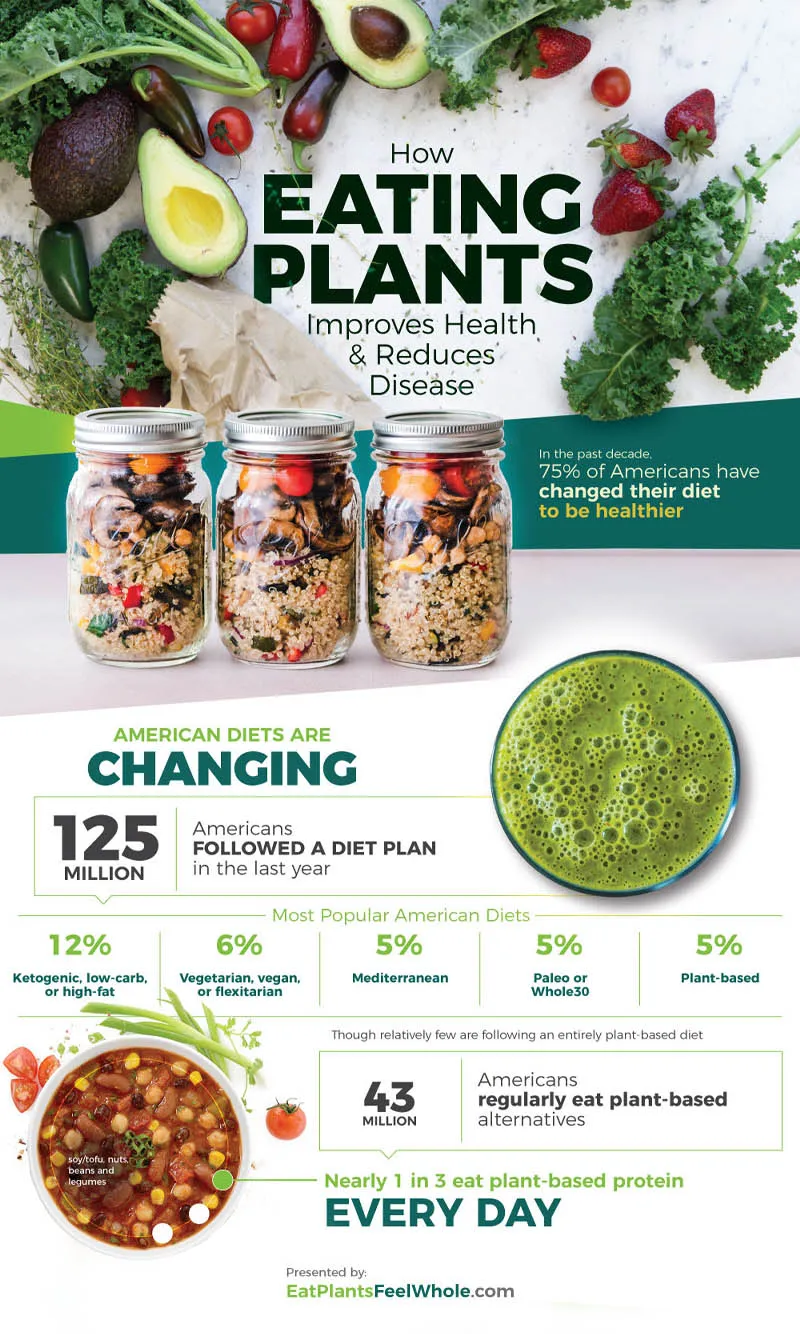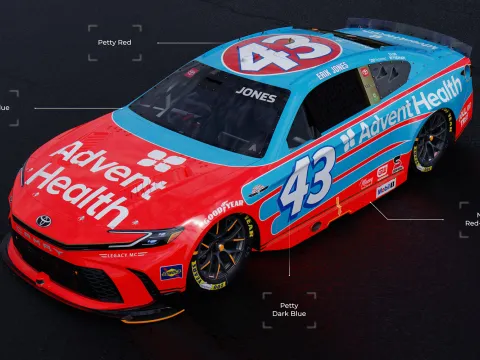- AdventHealth

In the past decade, 75% of Americans have changed their diet to be healthier. And last year alone, 125 million committed to following a new diet plan. So what are these “new” diets?
The most popular are low-carb and whole-food, plant-based options, such as:
-
Ketogenic (keto) diets
-
Mediterranean diets
-
Paleo or Whole30 diets
-
Vegetarian or vegan diets
But the truth is that whole foods aren’t new at all: they’re the same foods our ancestors ate. Simply put, whole foods are closest to their original form — whole apples instead of apple juice or steel cut oats instead of artificially flavored instant oats, for example.
Because they tend to have more vitamins, minerals, protein and fiber, whole and plant-based foods provide stable levels of energy throughout the day and are easier on your blood sugar, blood pressure and cholesterol. That means they can help you lose weight, keep your body working at an optimal level and reduce the number of medications you need to manage chronic health conditions.

Whole-Food, Plant-Based Eating Styles
Before you make a decision about which eating style is right for you and your family, it’s best to understand how they differ.
Ketogenic Diets
The Ketogenic diet is a low-carb style of eating that forces your body to use fat for energy instead of carbohydrates. While this style of eating can also be high in fat, some have chosen to follow “clean keto,” which means they incorporate more low-carb plant foods like leafy greens, nuts, seeds, avocados and coconut.
The keto diet has played a role clinically in helping people lose weight, control epilepsy and manage blood sugar. It’s also being investigated as a possible complementary treatment for some forms of cancer.
Mediterranean Diets
The Mediterranean style of eating was born from the traditional diets of those living in the countries that border the Mediterranean Sea. This method incorporates staple foods like beans, tomatoes, olive oil, whole grains, fruits, vegetables and fresh fish. Other animal products like dairy and meat are eaten less frequently.
Both the American Heart Association and the American Diabetes Association recommend following the Mediterranean diet to maintain good health and avoid chronic conditions like heart disease and diabetes.
Paleo and Whole30 Eating
Paleo eating is grain-, bean- and dairy-free but does includes vegetables, fruits, nuts, seeds, meat, poultry and fish. Basically, if you can hunt it or gather it from a field or tree, you can have it.
Whole30 is loosely based on the Paleo style of eating and aims to remove common food allergens to improve health.
Vegetarian and Veganism
A vegetarian diet is a plant-based style of eating that restricts some foods of animal origin like poultry and meat, but includes eggs and dairy products. Some vegetarians also include fish.
Veganism is a stricter form of a vegetarian diet and restricts all foods of animal origin including dairy, eggs, meat, fish, poultry and even honey.
Implement Small, Manageable Changes for a Big Impact
Following a plant-based eating plan doesn’t have to mean throwing out everything in your pantry or avoiding all your favorite foods. Small, manageable changes that are easy to implement can have a big impact and are more likely to stick long-term.
Shop for foods with fewer preservatives and artificial ingredients. That means you should be able to recognize all the ingredients on the package, and if you’re doing it right, many of the foods you’ll be eating won’t have a label at all.
Here are a few more ideas:
-
Implement 1 – 2 meatless meals each week
-
Test out replacements for your favorite kitchen staples (like unsweet almond milk instead of cow’s milk)
-
Try to fill half your plate with vegetables and fruits at meals
With a few changes each week, you’ll be eating mostly plant-based before you know it. And if you ever get confused, remember this simple quote from Michael Pollan, an American journalist and author of The Food Rules: “Eat food. Not too much. Mostly plants.”
Learn more about how nutrition affects your whole health and well-being in the book Eat Plants, Feel Whole.


